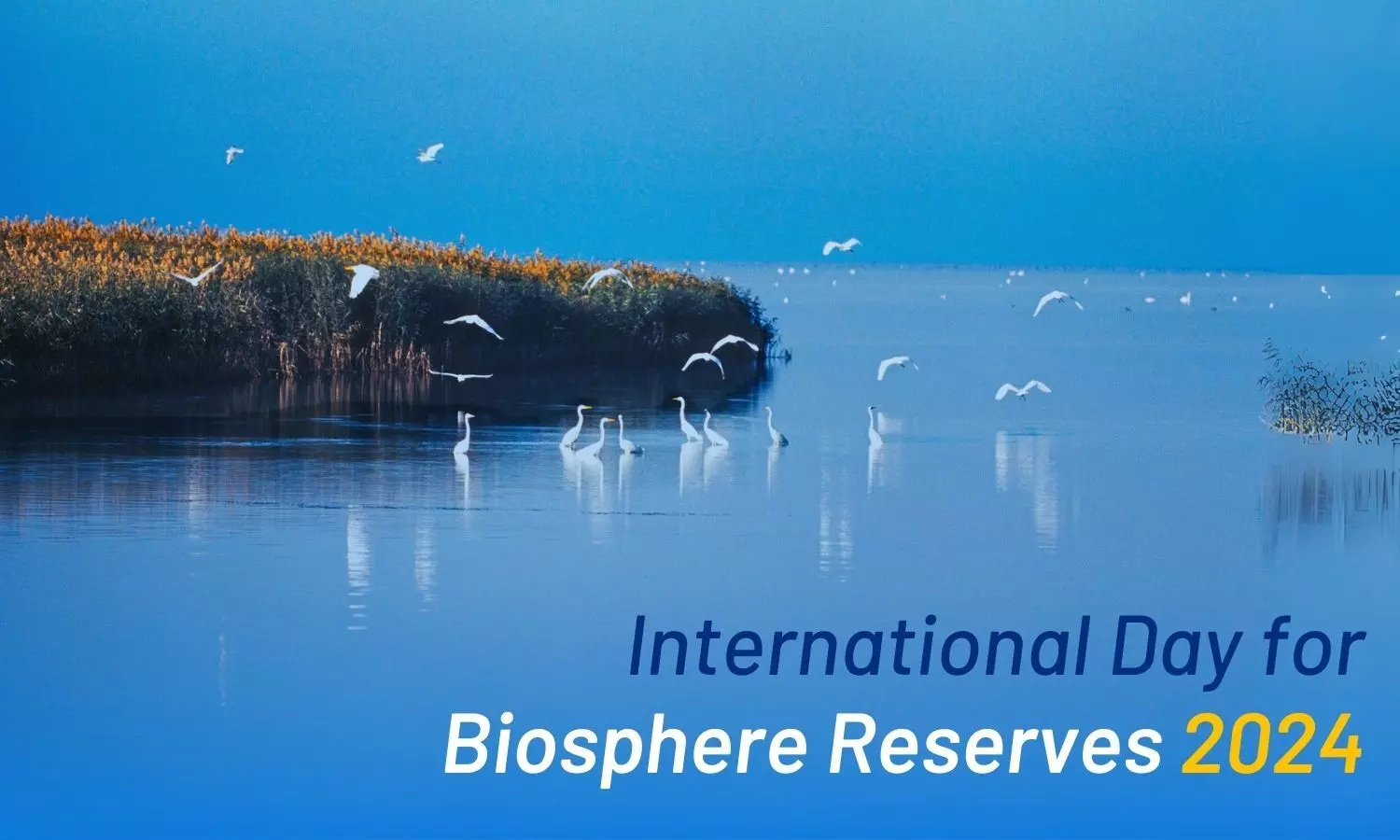International Day for Biosphere Reserves 2024- Celebrating Ecological Conservation and Sustainable Development
Learn about the importance of biosphere reserves, their zones, and the role of UNESCO in promoting ecological conservation and sustainable development.
International Day for Biosphere Reserves 2024- Celebrating Ecological Conservation and Sustainable Development

The International Day for Biosphere Reserves 2024 marks an important occasion dedicated to raising awareness about the significance of biosphere reserves in promoting environmental sustainability, conservation, and human well-being. As global ecosystems face increasing threats from climate change, habitat loss, and biodiversity decline, this day highlights the need to protect our natural heritage through sustainable practices and ecological conservation strategies.
Biosphere Reserves- An Overview
Biosphere reserves are designated areas that promote the conservation of ecosystems while fostering sustainable development. These reserves serve as living laboratories where solutions for balancing the needs of human populations and the environment are tested and implemented. They provide a framework for integrating conservation efforts with sustainable resource use, supporting ecological research, education, and innovation.
The Biosphere Reserve overview 2024 highlights their growing importance in the global effort to address environmental challenges. They are essential for conserving biodiversity, maintaining ecosystems, and fostering resilient communities by promoting sustainable development in harmony with nature.
History of Biosphere Reserves and the First UNESCO Biosphere Reserve
The concept of biosphere reserves was first introduced by UNESCO in 1971, as part of the Man and the Biosphere Programme. The aim was to create a global network of protected areas that would serve as models for achieving harmony between humans and nature. Over time, this initiative has grown into the UNESCO World Network of Biosphere Reserves, with more than 700 sites in over 130 countries.
The International Day for Biosphere Reserves history commemorates the efforts of this global network in fostering ecological balance, scientific research, and the sustainable use of natural resources.
The first UNESCO biosphere reserve was designated in 1976 as part of this global initiative. As biosphere reserves expanded across the world, they became crucial centres for ecological research, conservation, and sustainable practices. The first biosphere reserve in the world set the foundation for many others to follow, each playing a critical role in preserving ecosystems for future generations.
Biosphere Reserve Zones- Core, Buffer, and Transition
One of the defining features of biosphere reserves is their zoning system, which divides the area into three distinct regions. These zones are designed to support both conservation and human activity, ensuring that each part of the reserve has a specific function in maintaining ecological balance.
1. Core Zone- The core area is the heart of a biosphere reserve, consisting of ecosystems that are strictly protected for biodiversity conservation. No human activity is allowed within the core zone, ensuring that natural processes occur without disturbance.
2. Buffer Zone- Surrounding the core is the buffer zone, where activities compatible with conservation objectives are permitted. In this area, research, education, and monitoring can take place, along with sustainable resource management practices.
3. Transition Zone- The transition zone is the outermost area, where communities live and work sustainably. It is here that the principles of conservation and development come together, allowing for economic activities like agriculture, forestry, and eco-tourism that do not harm the environment.
Conservation Through Biosphere Reserves
Biosphere reserves are integral to global conservation efforts. They help safeguard habitats, preserve endangered species, and protect crucial ecosystems such as forests, wetlands, and coastal areas. Conservation through biosphere reserves ensures the protection of biodiversity while promoting sustainable livelihoods for local communities.
Many reserves also serve as refuge zones for species facing the threat of extinction, helping to maintain genetic diversity and support ecosystem services such as water purification, carbon storage, and climate regulation. They also promote ecological conservation strategies 2024 that can be applied beyond their borders, contributing to global sustainability.
Sustainable Development in Biosphere Reserves
One of the major goals of biosphere reserves is to demonstrate how nature conservation and human development can coexist. Sustainable development in biosphere reserves is centred on reducing the ecological footprint of human activities while improving the quality of life for local communities. By promoting sustainable agriculture, responsible tourism, and renewable energy initiatives, biosphere reserves contribute to achieving long-term environmental and economic goals.
This approach has far-reaching benefits, fostering innovation in sustainable technologies and encouraging people to live in harmony with nature. It serves as a model for regions worldwide that are looking for ways to develop without depleting natural resources or harming ecosystems.
Importance of Biosphere Reserves in 2024
The importance of biosphere reserves cannot be overstated, especially in the face of climate change and environmental degradation. These reserves provide safe spaces where ecosystems can thrive and where scientific research can inform future conservation efforts. They also serve as crucial educational tools, offering insights into the relationships between humans and their environment.
In 2024, biosphere reserves continue to be critical in promoting global ecological stability. Their role in protecting biodiversity, preserving natural resources, and supporting sustainable human development has made them a central component of global conservation strategies.
UNESCO Biosphere Reserves and Global Conservation
UNESCO’s role in designating and managing biosphere reserves has been instrumental in advancing global conservation efforts. The UNESCO Biosphere Reserves initiative reflects the organisation’s commitment to promoting harmony between humans and nature. Through its network of reserves, UNESCO supports research, education, and policy development to protect the planet's natural resources while meeting the needs of current and future generations.
The UNESCO World Network of Biosphere Reserves fosters international cooperation and knowledge sharing, ensuring that best practices for conservation and sustainable development are disseminated globally. This network also provides a platform for communities to engage with and benefit from their natural surroundings without compromising ecological integrity.

